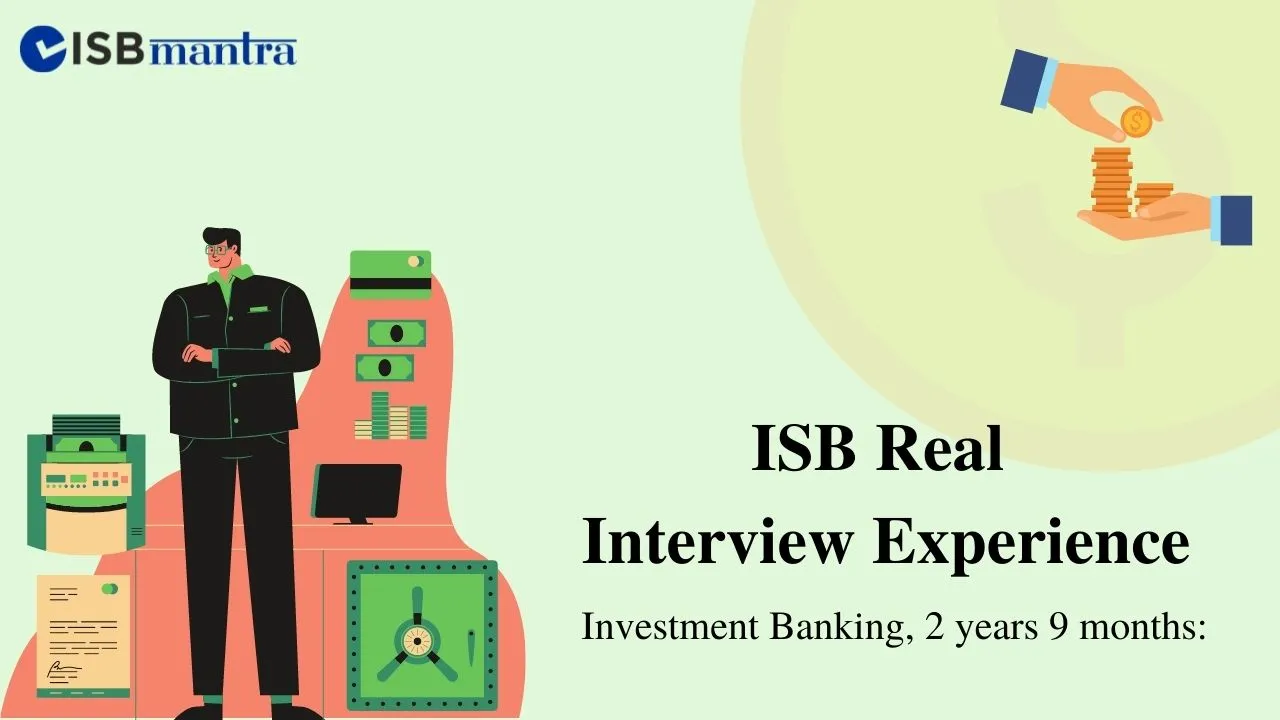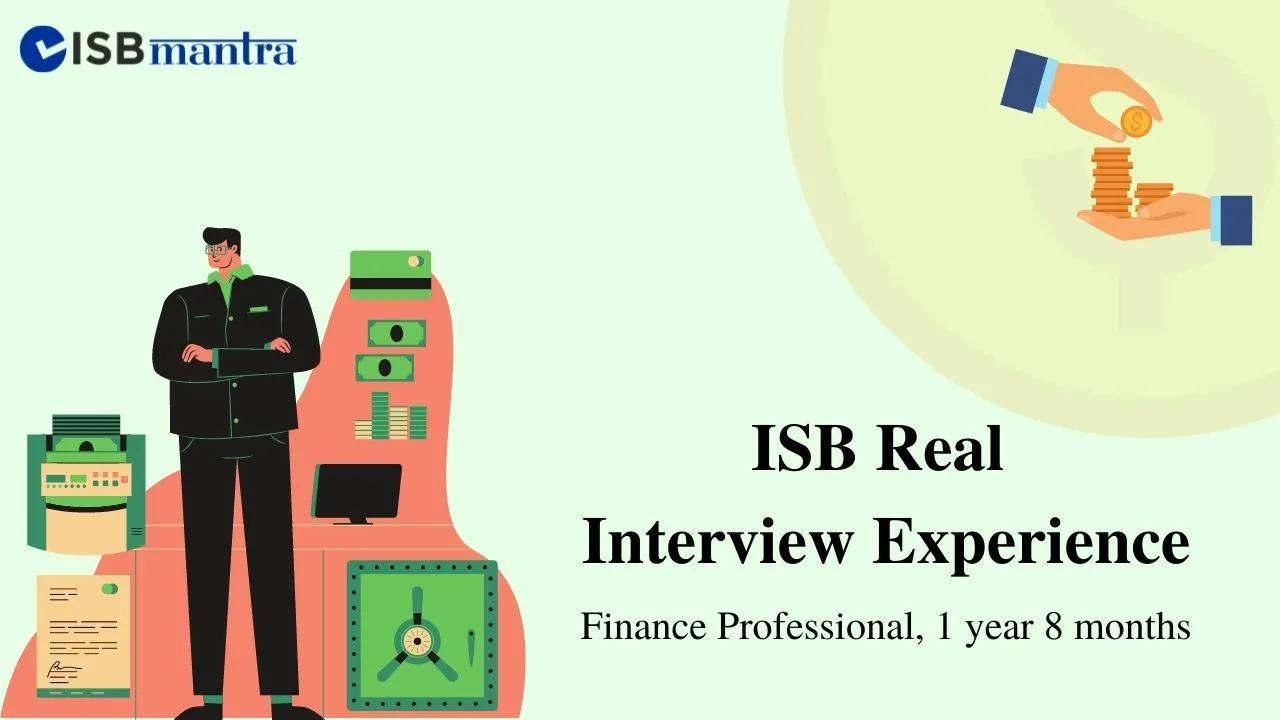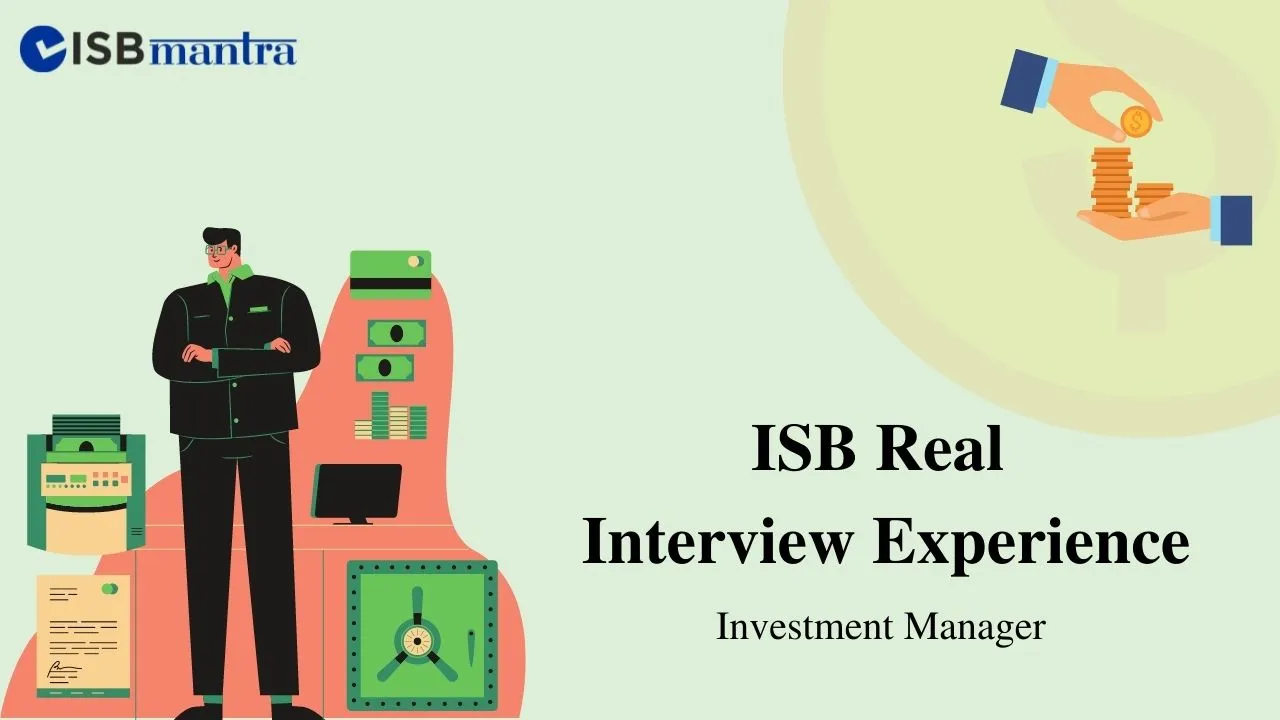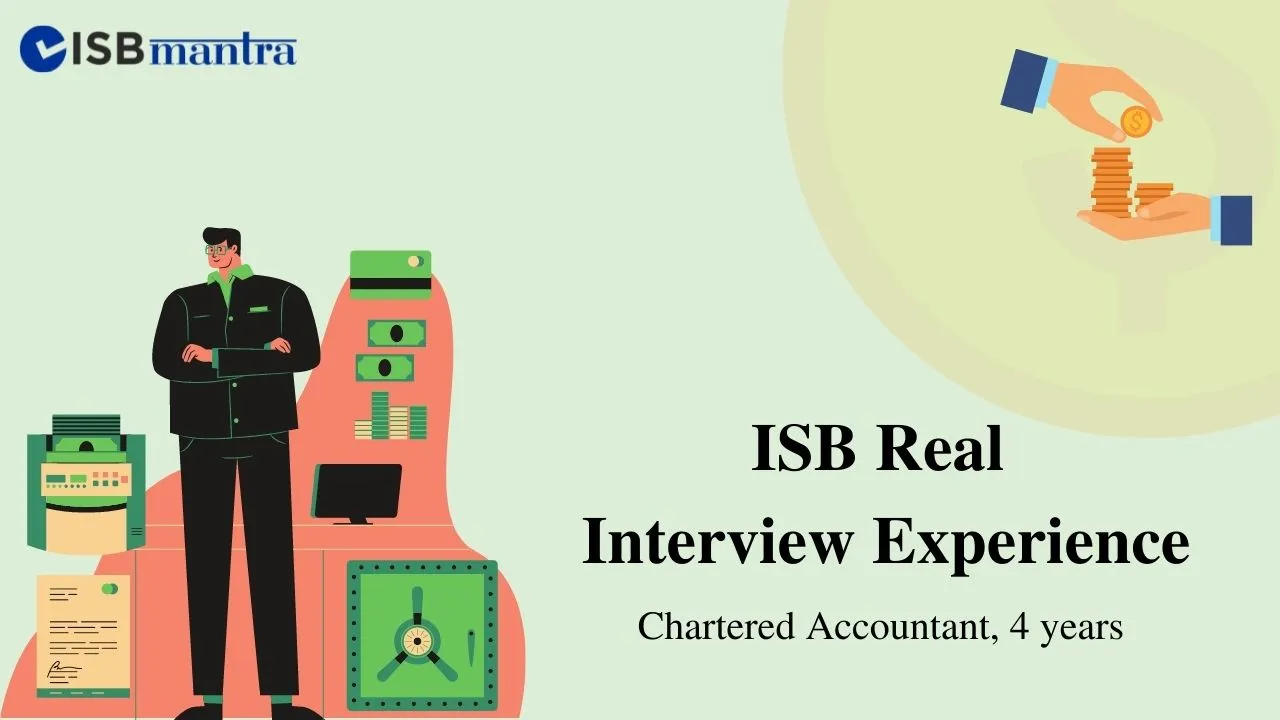This is the real ISB interview experience of a candidate who has 2 years 5 months of work experience in Investment Banking.

The ISB interview was conducted on January 19, 2019. As per the candidate’s information, there were two alumni in the interview panel. In his opinion, the interview was mainly focused on the profile and based on your responses.
| Interview Date | 19th Jan, 2019 |
| Work Profile | StashFin (Fintech Startup) – Investor Relations & Strategy – 5 months Deutsche Bank – Investment Banking – 2 years |
| Re-Applicant? | No |
| Interviewers’ Profile | P1 – Alum P2 – Alum |
| Your Opinion on the approach of the interviewers and their key focus | I did not feel that it was a stressful interview at the time, although looking back the interviewers tried to evaluate almost everything I have done till now. Key focus : Life / career choices |
| Suggestions and Preparation Tips for Prospective Students | Be sure about what you are listing as a reason and why. Expect cross questions |
Qn: How was working in a front-end IB?
A: Told them how I got to work closely with the directors and managing directors on deals. Also got exposure to coordination about various external parties on the transaction. Got a chance to work with a large-cap Indian player on a debt transaction mandate. Overall a very fulfilling experience
Qn: What was the worst part of your job?
A: Taking the decision to leave the bank. Because I had just shifted into the team when the decision was made and I would have liked to mature into the role even further
Follow-up Qn: Why did you make the decision to leave, what pushed you towards it?
A: Decision was made due to the change in the bank’s strategy of moving out of the Asian and US markets which meant that there were very limited learning opportunities for me in the bank
Qn: Why StashFin?
A: After I decided to leave Deutsche, I interviewed with various banks and startups, what pushed my decision to go with StashFin was that I would get the opportunity of using my investment banking skills as a base and learn in other areas as well, specifically operations and product
Qn: Why ISB?
A: I want to become a private equity investor in the long run and to do that I need 2 things, one to make good investment decisions and then making good on those investments. While I might have gained some training in financial modelling and valuation in the last 2 years (for which also I would get a chance to go through the formal education at ISB), I would need exposure to operations management and strategy management which I would get a chance to learn at ISB. I will also need to create my own network to become a successful PE investor in which ISB will help me.
Follow-up Qn: When did you realize you want to do an MBA?
A: Told them that I had decided this pretty early, because of the accelerated career path that I had seen for people who came in Deutsche with an MBA degree from the undergraduate. To get to that accelerated career path, I had to do an MBA as I do not have a core competency in Finance (came from biotech background)
Follow-up Qn: Why Finance after Biotech?
A: I come from a small town where my parents pushed me to get into IIT as they believed that would give me a chance to get a good job after. Talked to school seniors at IITs who told me that Biotech was the next-generation technology and there is a good opportunity to learn. Post joining realized that most of the opportunities were in the research jobs and hence went to a research intern after my third year in Germany which ultimately made me realize that research is something that I do not want to do. Pursued other fields after and the finance job roles coming to campus seemed exciting to me and hence pursued my interest towards that.
Qn: What is your short term goal?
A: To join a strategy consulting firm
Follow-up Qn: Why not continue with StashFin after ISB?
A: I believe that the structured training gained at multinational corporations are valued across the globe. I have seen this first hand when I had decided to move out of Deutsche, even StashFin realises this and has only one person in my position. I believe the training imparted at these organizations ensure that you have your core skills in place, which then can be applied elsewhere.
Follow-up Qn: Do you really believe that structured learning helps? Why did the 2008 crisis happen in that case?
A: Told them that the learning was all in place and was being applied at the day to day job, the reason for the crisis was that certain individuals made some non-ethical decisions that led to their own benefit rather than the society’s
Follow-up Qn: But it was a very large group of individuals that were involved. Don’t you think structured learning might have gone wrong?
A: Reiterated my point that it was not the core skills that they had were wrong, it was the decision that they took on how and where to use them
Follow-up Qn: Tell us if you got to apply your Deutsche learning at StashFin?
A: Told them that about one of the deals that involved changing several processes within StashFin and had to convince my core team that these changes add value to the company
Follow-up Qn: How did you go about making these changes
A: It was challenging. I had to work with industry experts with several years more experience than myself and had to convince them that the process that is being followed can be streamlined further
Follow-up Qn: Give an example of one process that you streamlined
A: Answered, told about how I went about putting the value proposition for the other members in the team
Qn: Okay, the last question, tell us about your trek
A: Answered
Follow-up Qn: What will you advice someone going on a first trek
A: told them 3 most important things
Follow-up Qn: How many people are not able to complete due to fitness?
A: 12000 feet none, 16000 feet 50% were not able to reach the actual peak.
Qn: Any questions for us?
A: Asked them if they had any specific advice for me to make the most of my ISB experience
Power packed interview packages
We can provide complete support during your ISB interview preparation through our power packed preparation module and personalized mock interviews.
Check this article, ISB interview – we have shared important interview tips and interview questions by A M Kannan, Ex ISB Director, Admissions and Financial Aid, Senior Mentor at ISBmantra.
Feel free to contact us for any further queries.



